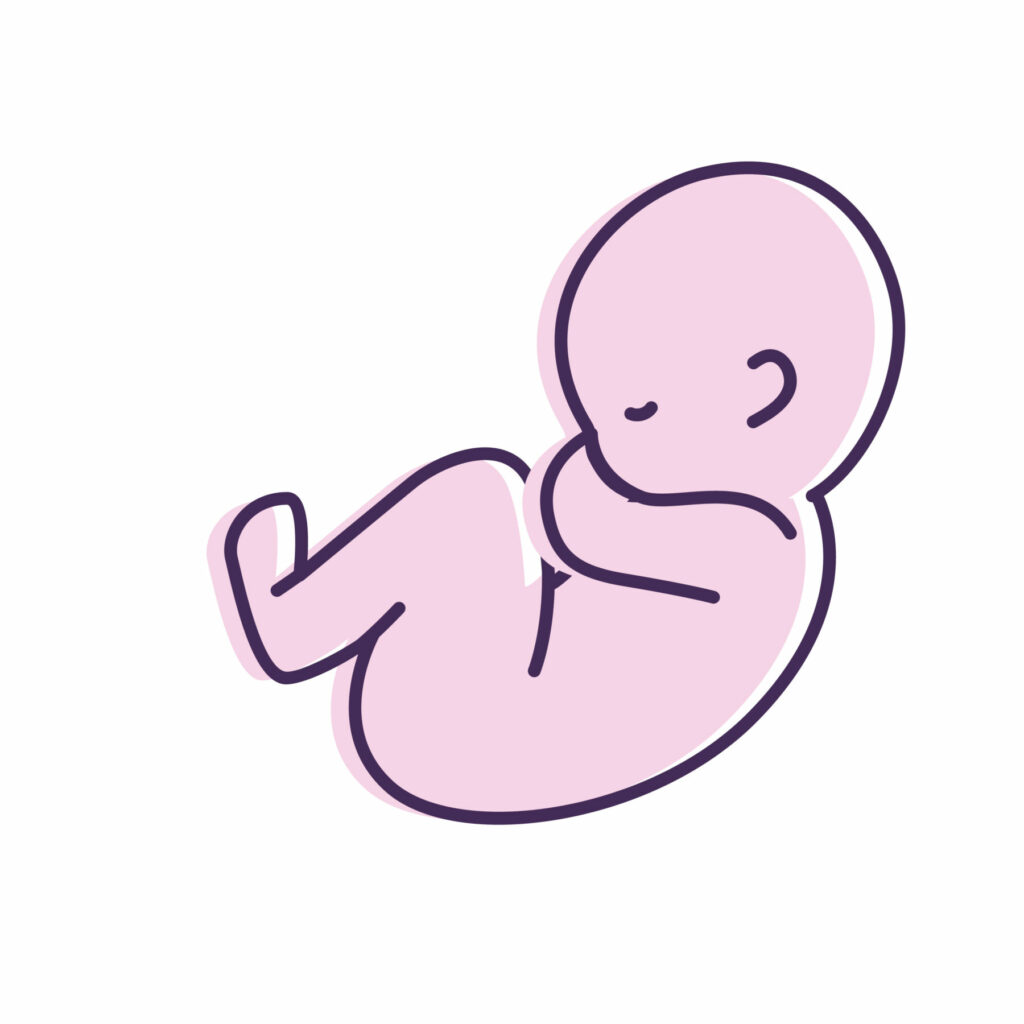Infertility Depression

Depression is a common and serious issue that affects many Americans. In fact, the National Institute of Mental Health (NIMH), estimates that in a given year, depression affects 17.3 million adults in the United States, or about 7.1% of the adult population (National Survey on Drug Use and Health, 2021). And still – individuals who experience difficulties with fertility, pregnancy, or have had a miscarriage are at an even higher risk of depression and profound grief. In a review of research in this area, Paula J. Lupton and colleagues found the link to be so strong that they suggest primary care physicians screen for depression when treating infertility issues, including those related to surrogacy (Journal of Affective Disorders, 2016). And, often, a depression counselor can be deeply beneficial to addressing that depression.
Is infertility common?
Infertility depression is particularly problematic because rates of infertility and miscarriage are quite high. At the time of this article, the World Health Organization (WHO) estimates that infertility affects 48.5 million couples worldwide. Furthermore, the Centers for Disease Control and Prevention (CDC) reports that approximately 10% of women (aged 15-44 years) in the United States have difficulty getting pregnant or carrying a pregnancy to term, and about 1 in 8 couples (or 12% of married women) have trouble getting pregnant or sustaining a pregnancy.
According to the American Pregnancy Association, 10-25% of clinically recognized pregnancies end in miscarriage. This means that hundreds of thousands of women and their partners experience the loss of a pregnancy each year. In a study published in the journal Obstetrics & Gynecology, researchers found that the overall rate of miscarriage in the United States was approximately 10%, with younger women and those who had experienced a previous miscarriage having a higher risk.
Prevalent, but silent.
Despite its normalcy, our society does not talk about infertility and miscarriage (and seeking a depression counselor for infertility depression is even less rare). In fact, most people are warned to not share that they are pregnant until after the first trimester, when miscarriage rates drop significantly, in order to preserve this privacy.
The silence that often surrounds miscarriages and infertility can be understood through forces such as social stigma, shame, and a lack of understanding or awareness of the emotional toll these experiences can have on individuals and couples.
In many cultures, there is a societal expectation that pregnancy and childbirth are joyous and uncomplicated experiences, which can make it difficult for those who have experienced infertility or a miscarriage to talk about their feelings and struggles. There may also be a fear of being judged or misunderstood, which can make people feel like they need to keep their experiences private.
Additionally, infertility and miscarriage can also be medical conditions that are not widely discussed or understood, and people may not know how to talk about them. This lack of information and support can make it challenging for people to process their feelings and find the help they need.
The silence surrounding infertility and miscarriage can also perpetuate feelings of isolation, shame, and guilt, which can contribute to depression and anxiety. It is important to break the stigma and to create a more open and supportive environment for individuals and couples who are affected by infertility and pregnancy loss. By raising awareness and seeking the support of a depression counselor, people can feel more empowered to talk about their experiences and find the help they need to heal.
How do infertility and miscarriage affect people?
The loss of a pregnancy can have a profound and long-lasting impact on physical, emotional, and psychological well-being. Not only does it affect women, but it also has ripple effects on expectant fathers, romantic relationships, children, and close friends. Understanding the emotional complexities that can arise with infertility or after a miscarriage is crucial in helping people to properly grieve and move towards healing in all aspects of life. As a competent depression counselor will know, this is a delicate and sensitive topic that must be approached with empathy and compassion. The experience can leave a person feeling vulnerable and uncertain about their body and self-worth, leading to feelings of anger, shame, and sadness. Even after the physical body has recovered, the emotional toll may create mental health struggles.
Signs of Infertility Depression
The aftermath of a miscarriage can bring about intense feelings of loss and sorrow, which can sometimes lead to depression. This mental health condition, also known as Major Depressive Disorder, is characterized by persistent and severe feelings of sadness that can last for a long time. People who suffer from depression often lose interest in things they once enjoyed and find it difficult to complete even the most routine tasks. Some common signs of Major Depressive Disorder include a loss of motivation, changes in appetite and sleep patterns, and feelings of worthlessness. If someone is experiencing these symptoms for two weeks or more, it is important that they reach out to a depression counselor for help. If these sound like you or someone you care about, consider seeking the help of a depression counselor:
- Loss of interest in previously enjoyed activities
- Persistent feelings of sadness or worthlessness
- Irritability or frustration
- Excessive sleep or insomnia
- Changes in appetite such as overeating or under-eating
- Restlessness or anxiety
- Fatigue and lack of energy
- Difficulty with concentration, memory, and decision-making
- Physical symptoms such as muscle aches that don’t respond to treatment
- Thoughts of self-harm or suicide
- Attempts at suicide.
With the aid of treatment and a supportive network of friends and family, individuals can start to feel like themselves again. It is possible for those who have experienced a miscarriage to have a successful pregnancy in the future. According to Mayo Clinic, only a small percentage of women have multiple consecutive miscarriages, with only 5% experiencing two losses and only 1% having more than two.
Your feelings are valid!
The grief associated with the loss of an unborn fetus can be unique compared to other forms of grief because the fetus wasn’t seen or physically experienced by the parents. This often leads to feelings of disbelief and a lack of validation from others who may not understand the depth of the loss. The absence of physical evidence can also make it challenging for individuals to fully process their emotions and find closure. Additionally, societal norms and stigmas surrounding pregnancy loss can further amplify the sense of isolation and silence that surrounds this type of grief. It’s important to acknowledge the significance of this loss and provide support and understanding, whether from a depression counselor or trusted social support, to those who have experienced it.
It’s not your fault!
Miscarriages are often not caused by anything that the person did or did not do, and early miscarriages are frequently due to chromosomal abnormalities in the fetus, which occur naturally. The recovery process from a miscarriage is not linear, and it can affect a person on multiple emotional levels. Knowing that these varying emotions are a normal part of the grieving process can provide comfort and support.
Dealing with infertility and miscarriage can be a difficult and complex process. Seeking support from a depression therapist may be crucial in navigating this phase of life. While physical health is important, it’s also essential to address the emotional impact of a miscarriage and infertility.
How do you combat infertility depression?
Navigating the aftermath of a miscarriage can be a challenging journey. However, there are supports to aid in the healing process. Joining support groups can provide comfort through shared experiences and empathy. Individual therapy, like that from a depression therapist who specializes in infertility depression, and grief, can offer an evidence-based approach to healing. For some, spirituality may provide a sense of comfort and peace, while others may find healing through other means. Ultimately, everyone heals at their own pace, and it’s okay to take the time you need.
It is important to remember that taking care of one’s emotional health is just as important as taking care of physical health. To aid in the recovery process, there are resources available to help manage depression following a miscarriage. Don’t hesitate to reach out for help when it is needed, whether to a depression therapist in Chicago or a support network.
This blog is made for informational and educational purposes only. It is not medical advice.
The information in this blog is not intended to (1) replace a one-on-one relationship with a qualified licensed health care provider, (2) create or establish a provider-patient relationship, or (3) create a duty for us to follow up with you.



